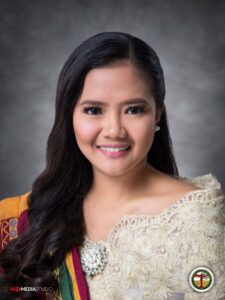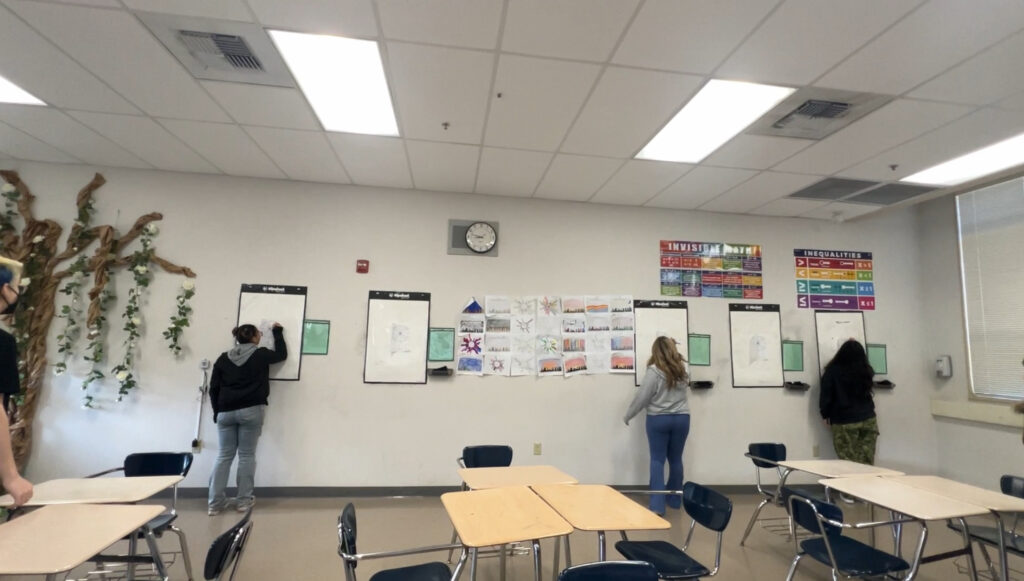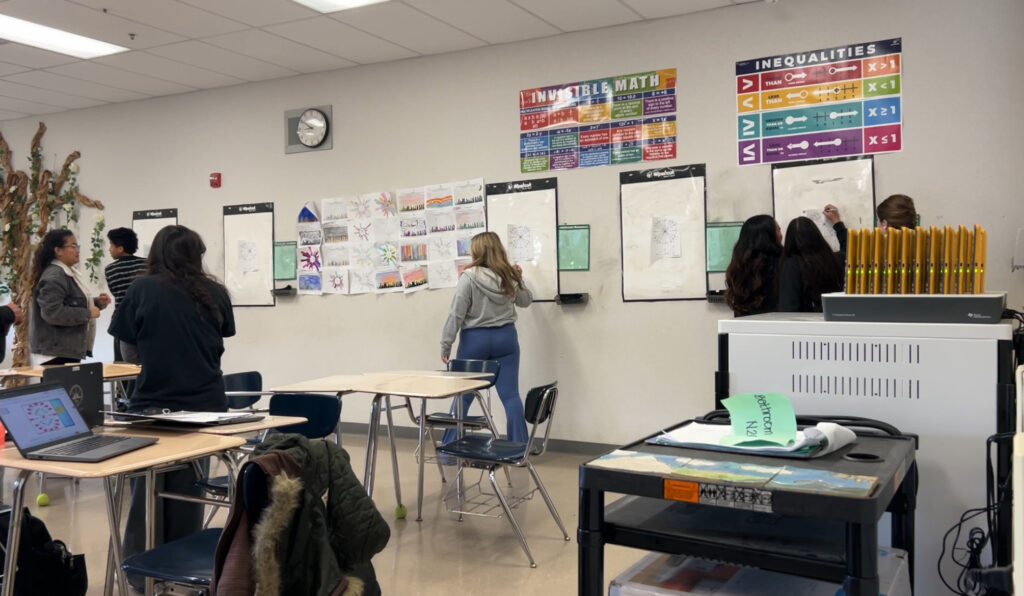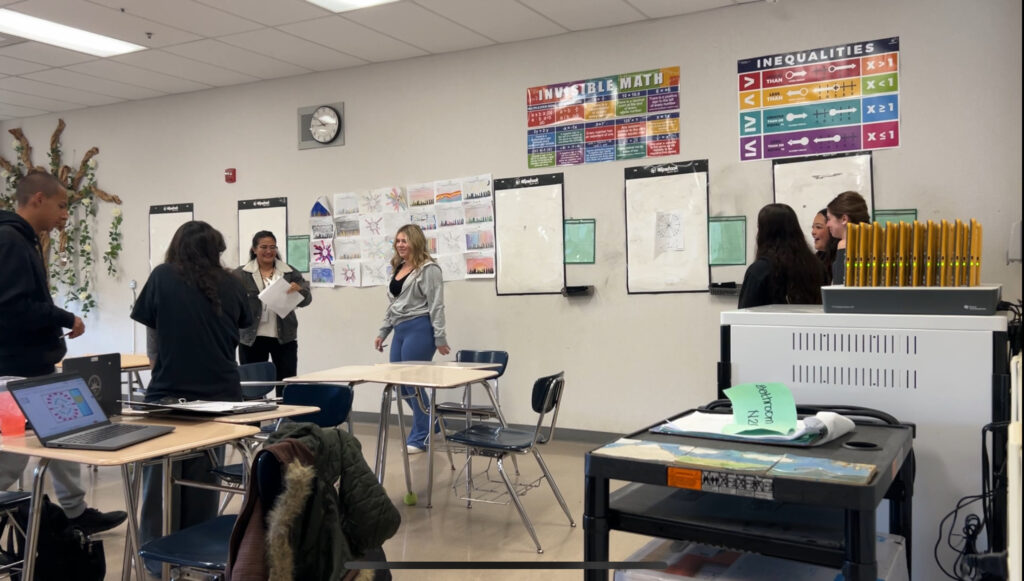
In today’s world, which technology and AI are shaping at such an accelerated pace, children need the type of education that will help them apply what they learn in innovative ways. More than ever, students need STEM skills (science technology engineering, and math). Math, in particular, is a fundamental skill that can help children develop “critical thinking, curiosity, persistence, decision-making, leadership, entrepreneurship, acceptance of failure and more.” Yet these skills are not easily taught or learned. Two years post-pandemic, students continue to struggle with gaps in their learning, especially in Math, and can lose self-confidence in their ability to achieve. In June 2023, the National Center for Education Statistics (NCES) reported the largest single decline in Math scores in half a century, indicating “worrisome trends about student achievement and well-being.” However, some teachers are finding new ways to reach their students. Sheila Mae Manlangit, M.Ed. teaches Math 1 and Math 3 to a range of high school grade levels in Jefferson Union High School District. When she discovered her students were simply applying procedural skills rotely, without really understanding what they were doing, she recognized a problem. What she did in response was a game changer: She started a “Thinking Classroom.”
Now, in her classroom, students spend two full days, Monday and Tuesday, in groups of three at eight white boards solving problems, called “thin sliced questions,” together. The three in a group is intentional: “Two is too few for you to share ideas and four is too many; one person gets left behind and three or two people carry the entire group.” What is so game changing about this approach is the increased self-confidence in students when they truly grasp the concepts. “They also learn that it is okay to ask for help and make mistakes,” says Ms. Manlangit. In a typical classroom, where students are seated at their desks listening to their teacher lecture, students may be too ashamed to ask questions, unwilling to admit they are not getting something and not wanting to hold up the whole class while they struggle. In a “Thinking Class,” they learn that it’s okay to be learning and discovering answers with others.
In a paper published in January 2024 in the International Journal of Open-Access,” Sheila wrote that helping students become a “critical thinker and problem solver . . . requires not only awakening but sustaining their interest for continuous learning.” She explained this “cannot be achieved through the conventional way of Mathematics teaching. Rather than just listening to teachers talk, the students need to be more actively involved in mathematics and do mathematical activities.” She also uses hands-on learning activities like paper folding and geoboard, “using concrete objects . . . to help students understand abstract concepts,” and published 2 articles on how the use of each of these mathematical practices makes learning last and more meaningful. These practices were her focus on her thesis dissertation during graduate school which earned her degree of Master’s of Education, major in Mathematics at the University of the Philippines Cebu.
Meeting children where they are allows Ms. Manlangit to teach students with a wide variety of skills. She has also incorporated equitable grading practices. Students know exactly what they need to learn to get a B or an A because these grades match specific concepts they need to master. Students also are allowed to retake portions of the test they miss. This system for assessing students not only encourages them to be “accountable” for their grades but motivates them to master these vital skills.
In another radical change to her classroom, Ms. Manlanglit collects everyone’s phones in a box at the beginning of class, memorizing the number in the slot with the student, knowing how important these objects are to her students. The effort seems worthwhile, as the students are no longer distracted by notifications that would set their thinking off the rails of what they are learning.
Ms. Manlangit has students who will probably take other paths than a STEM career. When encountering students who do not understand the relevancy of Math to their future lives, she tells them tackling these concepts helps to “build character.” She also gives her students “interest projects,” where they learn about financing a car, credit card fees, and investment, using Tik Tok videos to demonstrate their learning.
Besides her innovative techniques in the classroom, she has helped initiate a peer tutoring program where 15 of her students help other students in need of Math support three times a week. In solving the obstacles to learning in her classroom and extending her success to others, Sheila Mae Manlangit is finding joy in teaching. As a bonus, she has been the recent recipient of many awards for teaching: Outstanding Math Educator and Outstanding Coteacher Award in 2 consecutive years 2022 and 2023, a National award, “Excellence in Leadership and Outstanding Mathematics Educator of the Year” in 2023, and another for “Best Action Research” in 2023. Aside from her teaching career, she has been working as a research consultant where she works closely with undergraduate and graduate school clients to understand their objectives and requirements and design research projects tailored to address specific questions or problems, outline methodologies, timelines and deliverables. The best news: Her students are showing leadership skills too and will take their learning into the future to help solve our most pressing challenges.



Darcy Crosman, EdD, is an editor and research consultant who earned her doctorate in Cross Cultural Studies from Alliant International Institute. She recently co-edited a 2023 book entitled, Black Female Perspectives From Predominantly White Institutions: Strategies for Wellbeing in White Spaces and Beyond.


































I am a witness of her dedication and hardwork as a public school teacher. You go above and beyond to make sure your students learn. So proud of you❤️